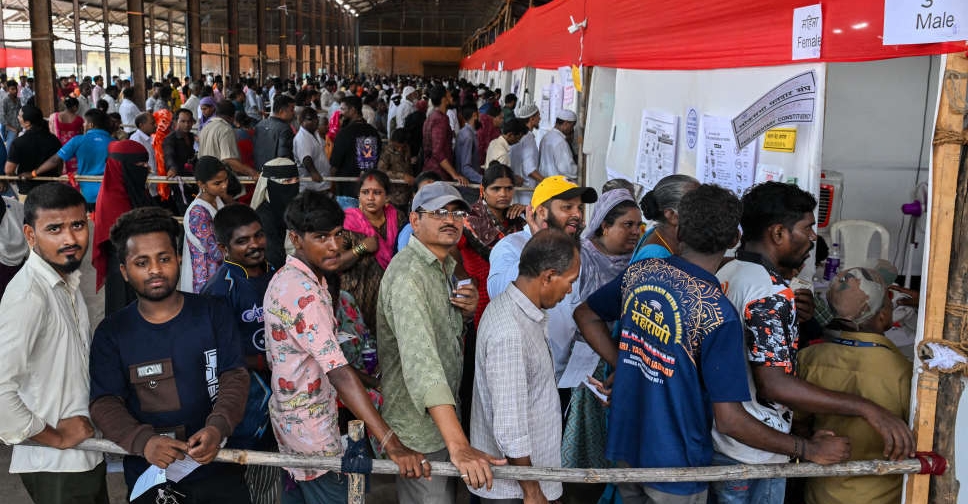
Japan launched a lunar exploration spacecraft on Thursday aboard a homegrown H-IIA rocket, hoping to become the world's fifth country to land on the moon early next year.
Japan Aerospace Exploration Agency (JAXA) said the rocket took off from Tanegashima Space Center in southern Japan as planned and successfully released the Smart Lander for Investigating Moon (SLIM).
Unfavourable weather led to three postponements in a week last month.
Dubbed the "moon sniper", Japan aims to land SLIM within 100 metres of its target site on the lunar surface. The $100-million mission is expected to start the landing by February after a long, fuel-efficient approach trajectory.
"The big objective of SLIM is to prove the high-accuracy landing ... to achieve 'landing where we want' on the lunar surface, rather than 'landing where we can'," JAXA President Hiroshi Yamakawa told a news conference.
Hours after launch on Thursday, JAXA said it picked up signals from SLIM showing it was operating normally.
The launch comes two weeks after India became the fourth nation to successfully land a spacecraft on the moon with its Chandrayaan-3 mission to the unexplored lunar south pole. Around the same time, Russia's Luna-25 lander crashed while approaching the moon.
Two earlier lunar landing attempts by Japan failed in the last year. JAXA lost contact with the OMOTENASHI lander and scrubbed an attempted landing in November.
The Hakuto-R Mission 1 lander, made by Japanese startup ispace crashed in April as it attempted to descend to the lunar surface.
SLIM is set to touch down on the near side of the moon close to Mare Nectaris, a lunar sea that, viewed from Earth, appears as a dark spot. Its primary goal is to test advanced optical and image processing technology.
After landing, the craft aims to analyse the composition of olivine rocks near the sites in search of clues about the origin of the moon. No lunar rover is loaded on SLIM.
Thursday's H-IIA rocket also carried the X-Ray Imaging and Spectroscopy Mission (XRISM) satellite, a joint project of JAXA, NASA and the European Space Agency.
The satellite aims to observe plasma winds flowing through the universe that scientists see as key to helping understand the evolution of stars and galaxies.
Ground stations in Hawaii and Japan received signals from XRISM soon after the launch confirming that the satellite's solar panels successfully deployed, JAXA said.
Mitsubishi Heavy Industries manufactured the H-IIA rocket and operated the launch, which marked the 47th H-IIA Japan has launched since 2001, bringing the vehicle's success rate close to 98 per cent.
JAXA had suspended the launch of H-IIA carrying SLIM for several months while it investigated the failure of its new medium-lift H3 rocket during its debut in March. Japan plans to retire the H-IIA after its 50th launch in 2024.
Japanese Prime Minister Fumio Kishida said in a social media post after the launch on Thursday that developing flagship rockets is essential to Japan's independent space activities.
"We'll build up the momentum toward the successful re-launch of the H3 rocket," Kishida posted on the social media X, previously known as Twitter.
Japan's space missions have faced other recent setbacks, with the launch failure of an Epsilon small rocket in October 2022, followed by an engine explosion during a test in July.
JAXA plans a joint Lunar Polar Exploration Mission (LUPEX) with the Indian Space Research Organisation beyond 2025, in which Japan's H3 rocket will carry India's next lunar lander into space.
The country also aims to send an astronaut to the moon's surface in the latter half of the 2020s as part of NASA's Artemis programme.

 Iranian President Raisi killed in helicopter accident, state media says
Iranian President Raisi killed in helicopter accident, state media says
 Israel intends to broaden Rafah sweep, Defence Minister tells US
Israel intends to broaden Rafah sweep, Defence Minister tells US
 New Taiwanese president calls on China to stop threats
New Taiwanese president calls on China to stop threats
 India votes in fifth phase of elections
India votes in fifth phase of elections
 South Africa's ex-leader Zuma barred from running for parliament
South Africa's ex-leader Zuma barred from running for parliament



